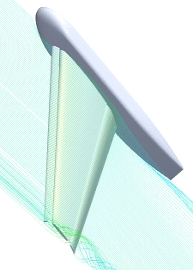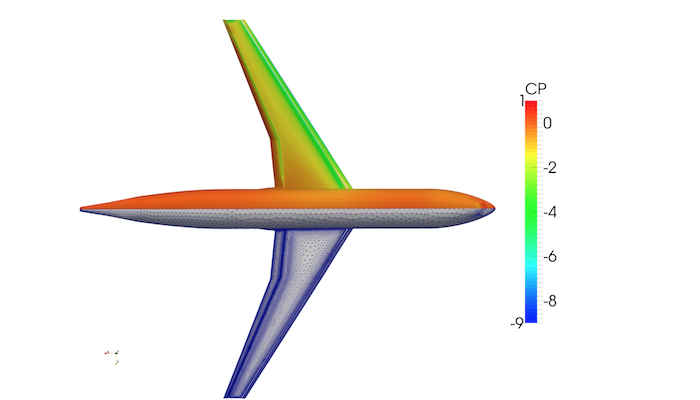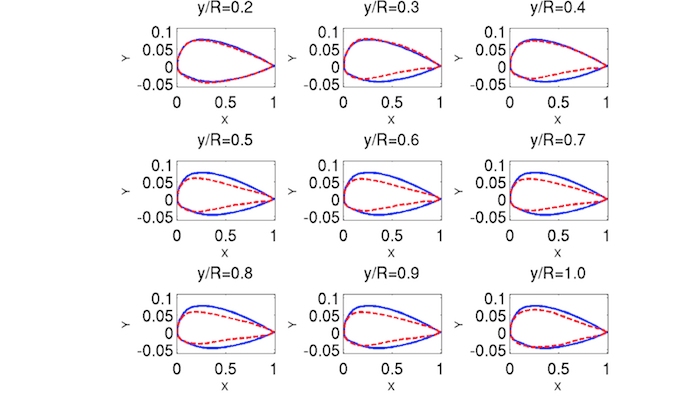Research Overview
Our research is concerned with the development of structured and unstructured mesh methods for computational fluid dynamics.
Our solver technology includes finite volume and high order finite element methods, solution methods such as multi-grid and implicit methods for steady-state
and time-accurate simulations, unstructured grid generation techniques and adaptive and moving mesh strategies using overset.
We are also interested in design optimization using adjoint methods, and the efficient solution of coupled fluid-structural problems.
The application areas include aerodynamics of
commercial aircraft and wind energy, and unsteady aeroelastic effects.

Research Topics

Aerospace
Through solver technology and solution methods our group has contributed to advancing aerospace design with CFD. We regularly contribute to the NASA's high lift prediction and drag prediction workshops.
Wind Energy
CFD research for wind energy can improve wind turbine blade design, wind farm controls, and wind farm layout with regards to terrain.

Optimization
A variety of optimization applications have been developed using adjoint methods to compute sensitivities for aerodynamic, aero-acoustic and aero-structural objective functions. These sensitivities have been used to drive gradient based optimization, as well has h/p adaption, surrogate modelling and uncertainty quantification.
Solver Technology
Our team is using a variety of solvers to match the numerical problem including finite volume, and finite element (continuous & discontinuous Galerkin). Techniques to advance the solution include applying time spectral methods, Lattice Boltzman methods, and h/p multi-grid.